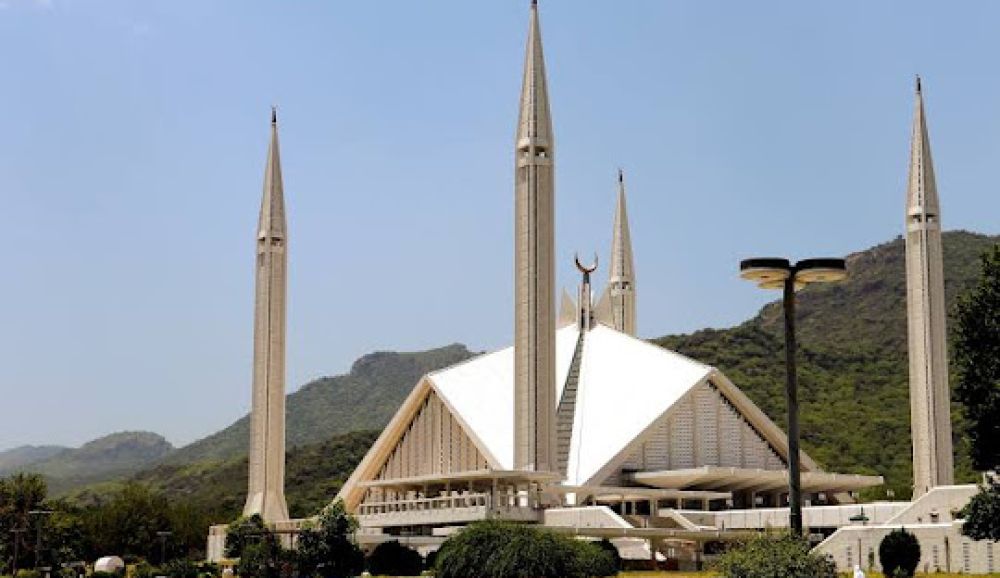Islamabad is the capital city of Pakistan, located within the federal Islamabad Capital Territory. With a population of over one million, it is the 9th largest city in Pakistan. Built as a planned city in the 1960s to replace Karachi as Pakistan's capital, Islamabad is noted for its high standards of living, safety, and abundant greenery. The city is divided into eight zones, including administrative, diplomatic enclave, residential areas, educational sectors, industrial sectors, commercial areas, rural and green areas. The city's master plan was designed by Greek architect Constantinos Apostolos Doxiadis. Islamabad is known for its well-organized layout, wide streets, and large houses. Key landmarks include the Faisal Mosque, which is the largest mosque in Pakistan and the fourth largest in the world, and the Pakistan Monument, which is a national symbol of Pakistan. The city is flanked by the Margalla Hills, the westernmost foothills of the Himalayas and has several hiking trails, which offer scenic views and are popular among outdoor enthusiasts. Islamabad's climate has a typical version of a humid subtropical climate, with five seasons: Winter, Spring, Summer, Rainy Monsoon, and Autumn.

